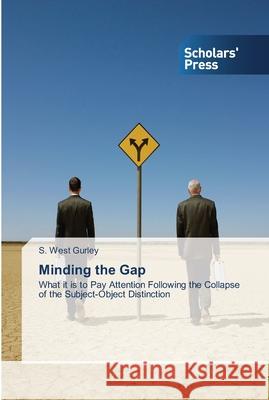Minding the Gap » książka
Minding the Gap
ISBN-13: 9783639515770 / Angielski / Miękka / 2013 / 180 str.
Contemporary studies of the phenomenon of attention uncritically suppose that the only way to go about observing attention is as a modification of consciousness. Consciousness is taken to be always intentional, i.e., distinguished by reference to an object whether physical or not toward which it is directed. Observers of attention therefore assume that attention is an intentional modification of consciousness. Such practices of observation, in virtue of the kinds of practices that they are, take for granted that the fundamental constituents of reality are subjects and objects. Husserl and Heidegger (and Merleau-Ponty after them) discovered that belief in the world as divided into subjects and objects is merely a convenience designed for the purpose of making a certain kind of sense of experience intelligible a belief that operates as a controlling assumption which forces the world, if it is to be intelligible, to show up under the oppressively confined ontology that was originally introduced merely as an observational convenience.











